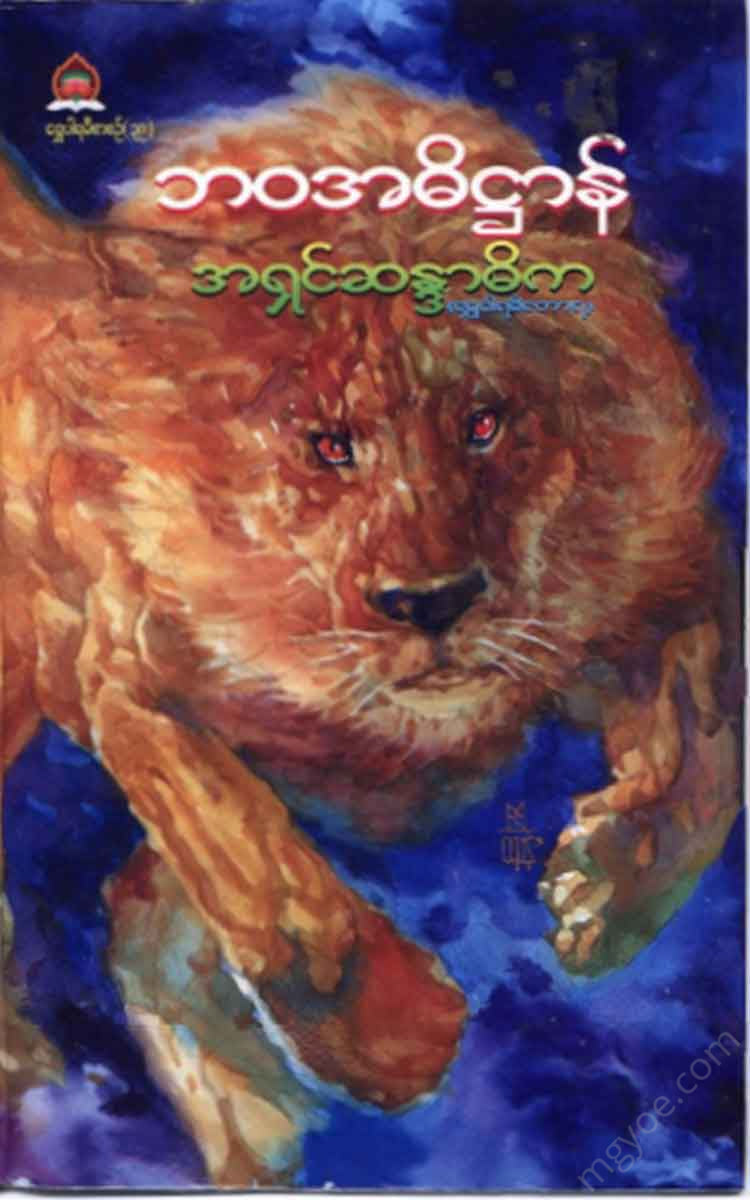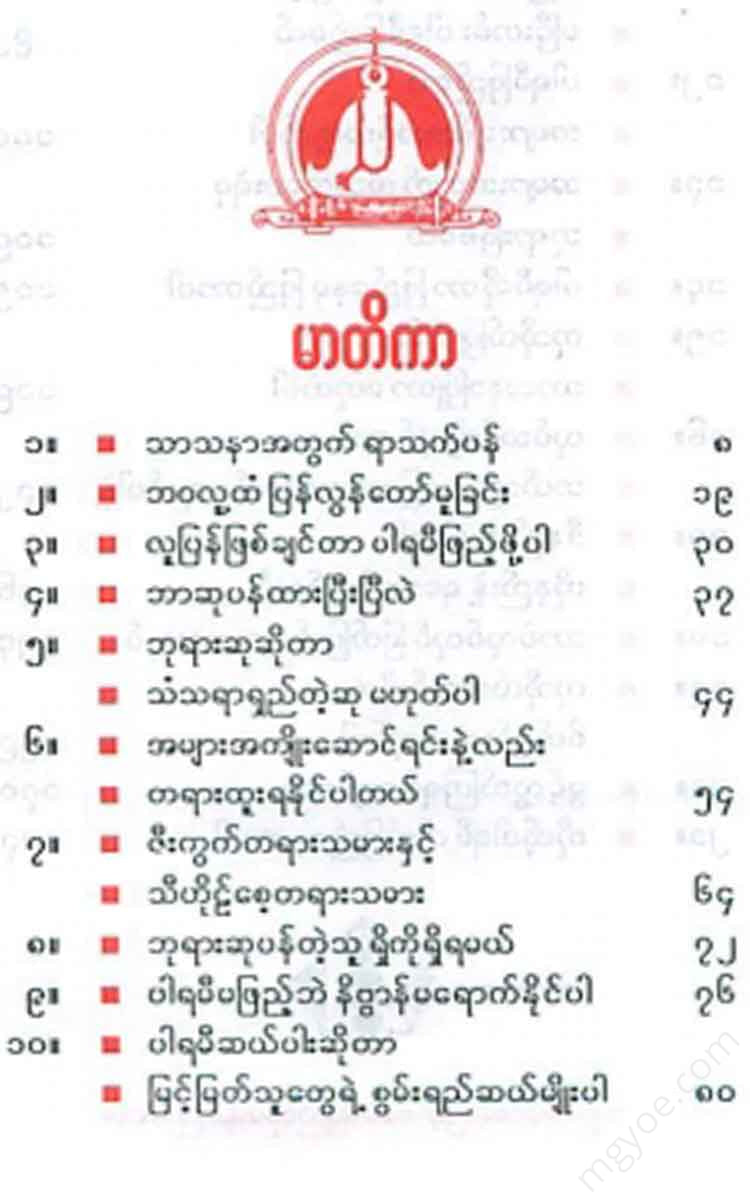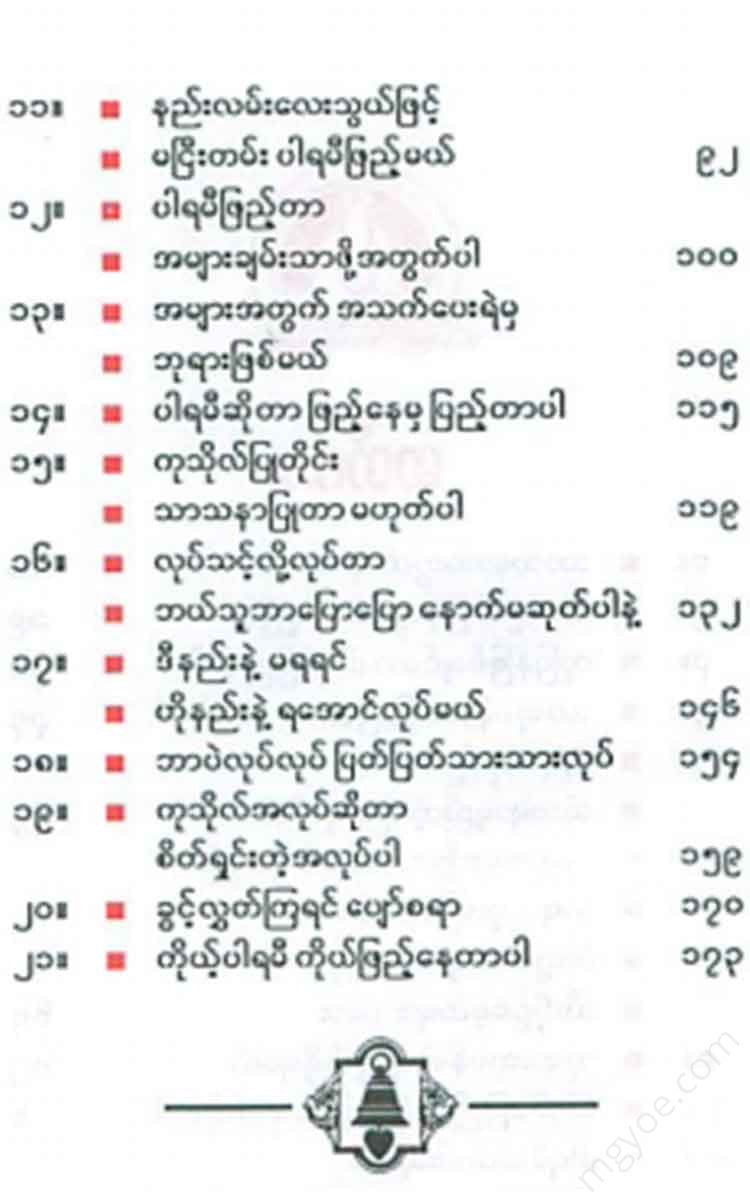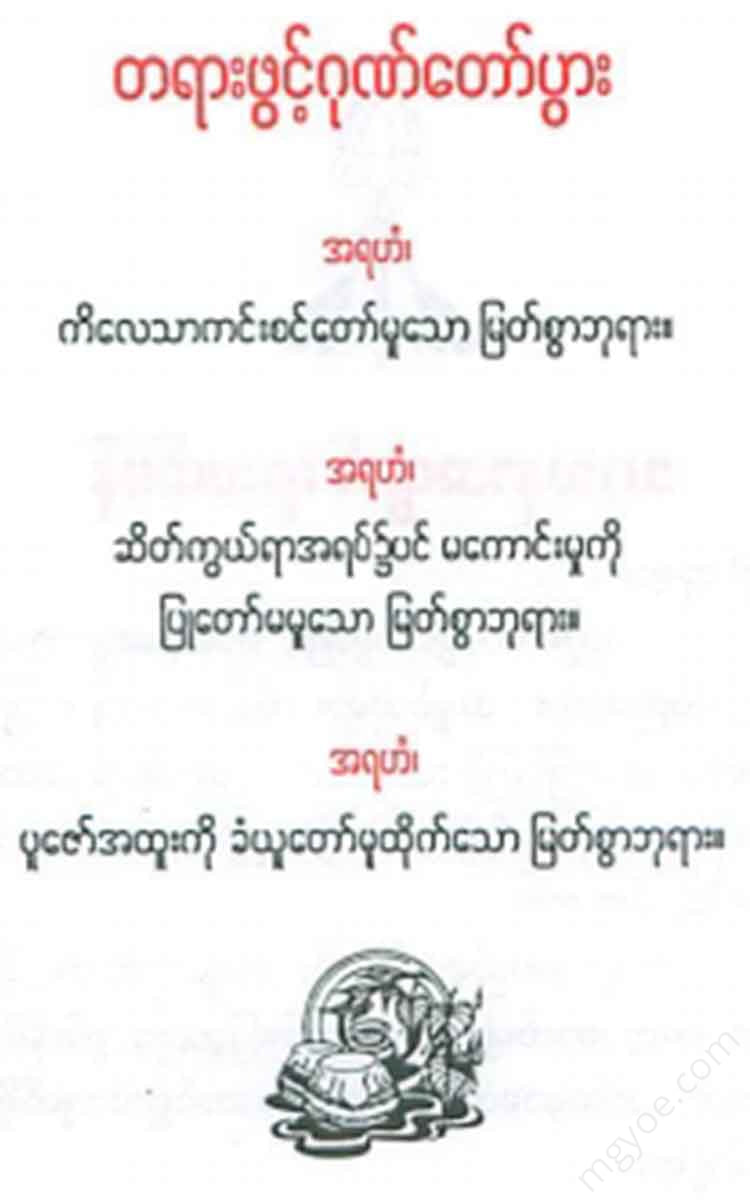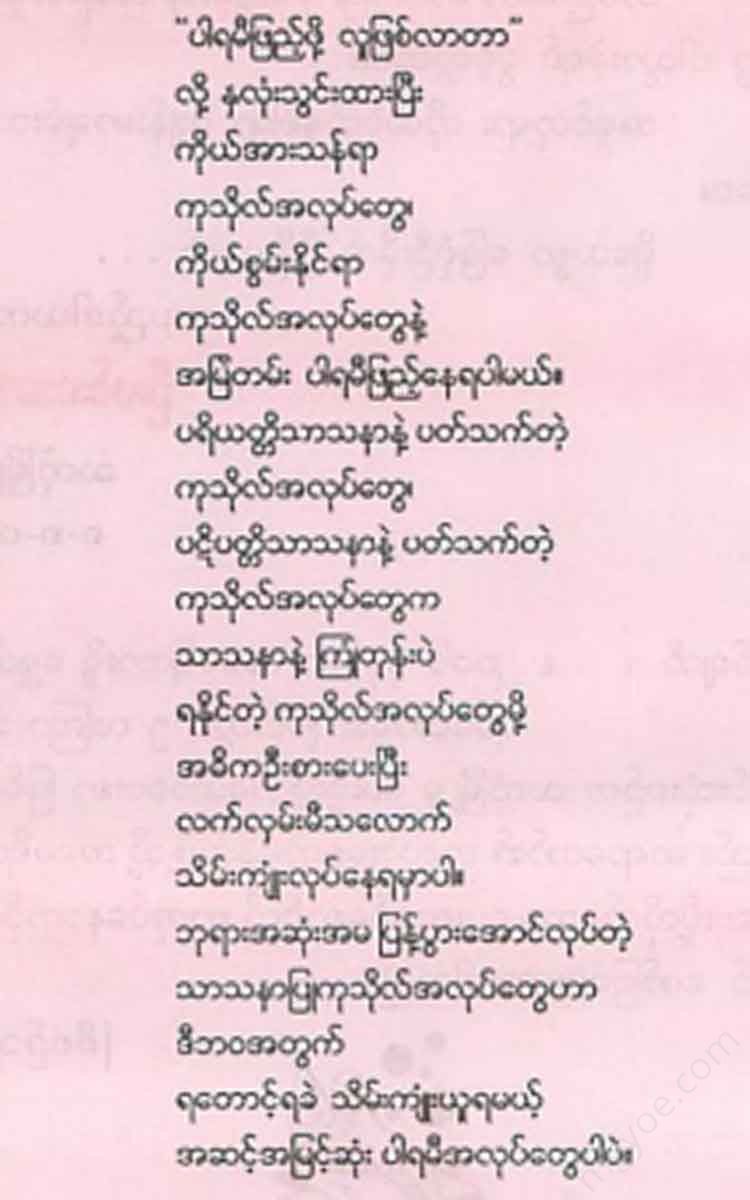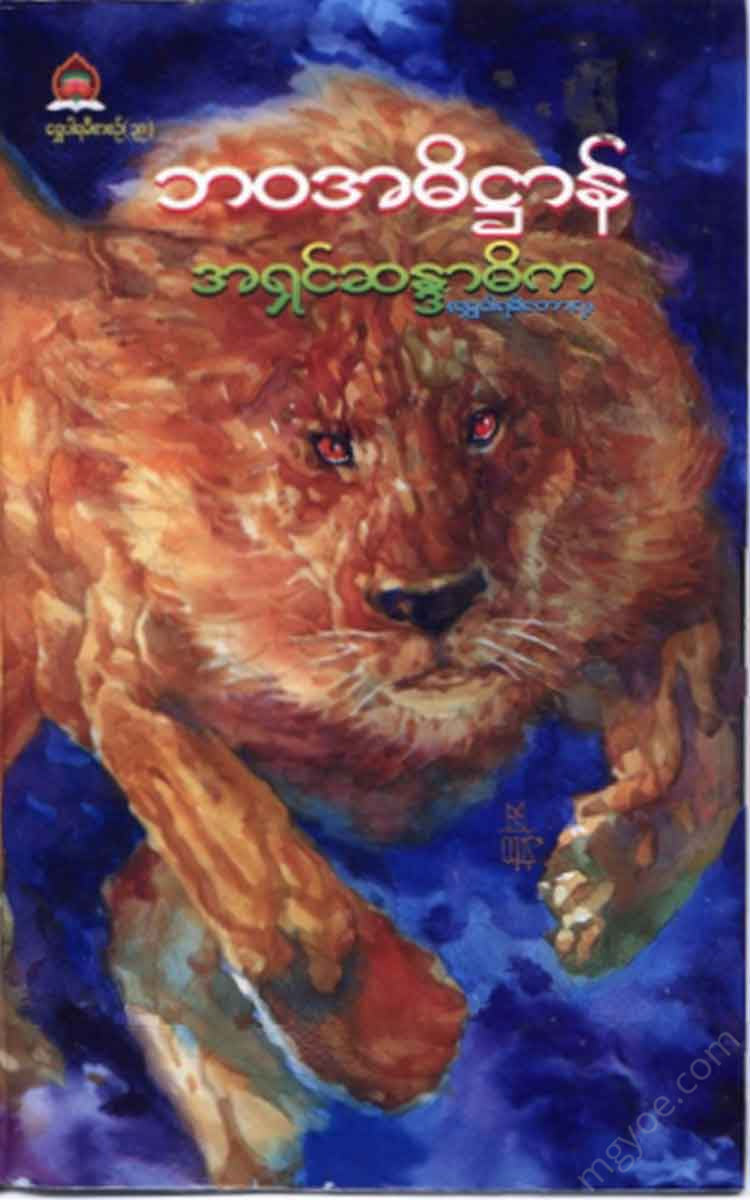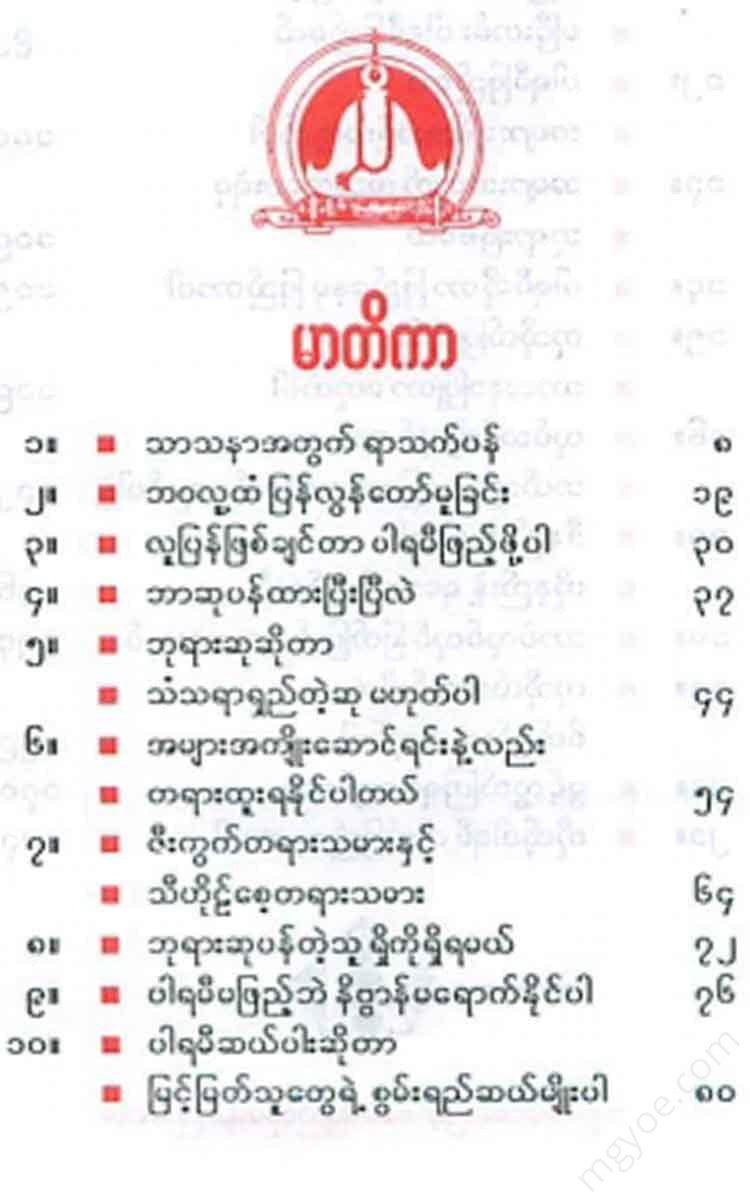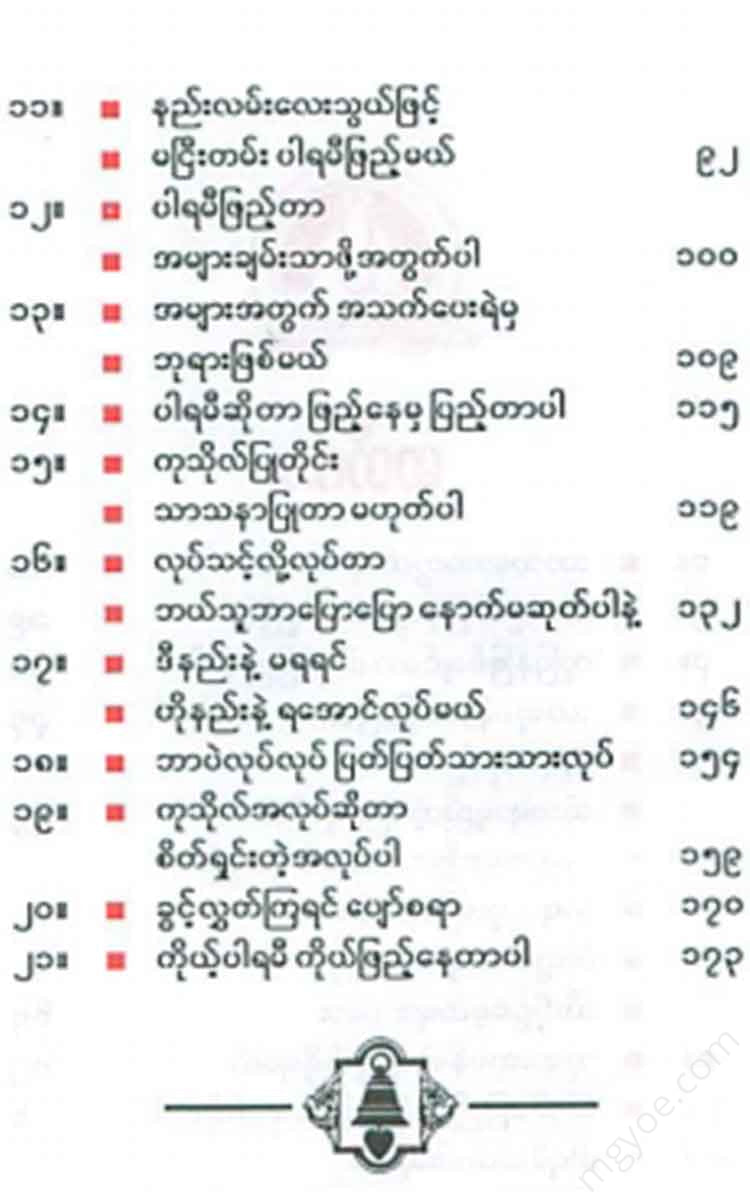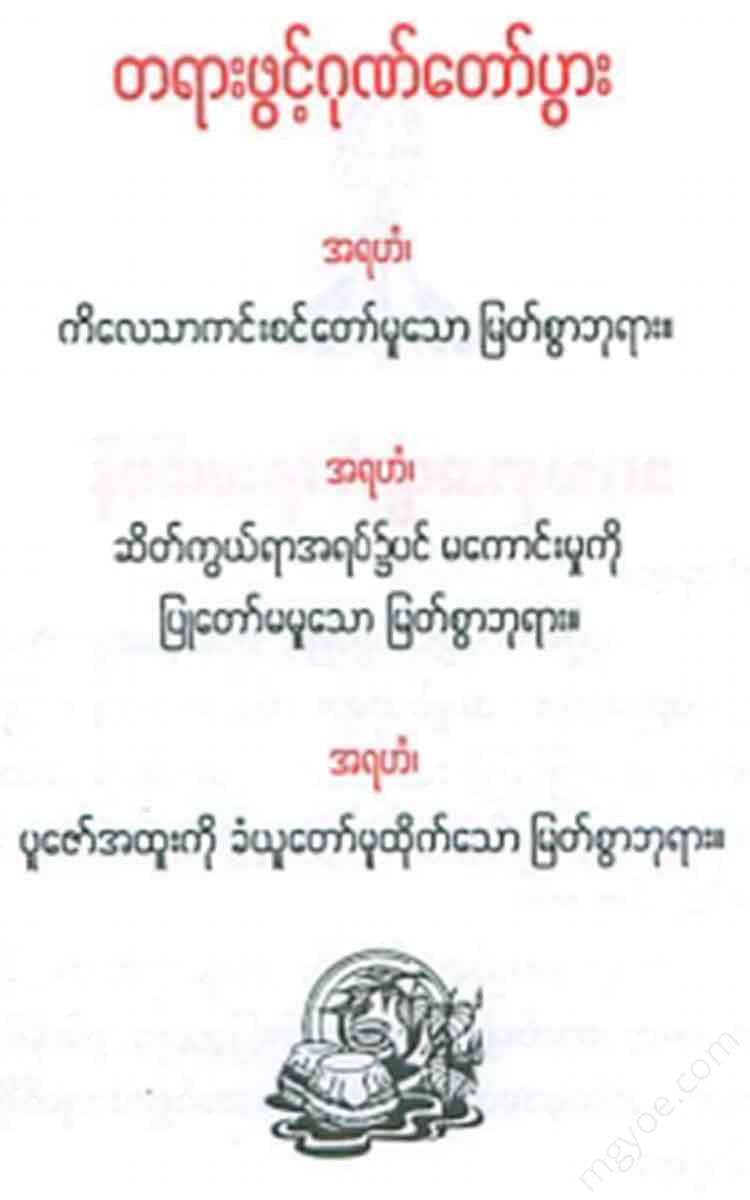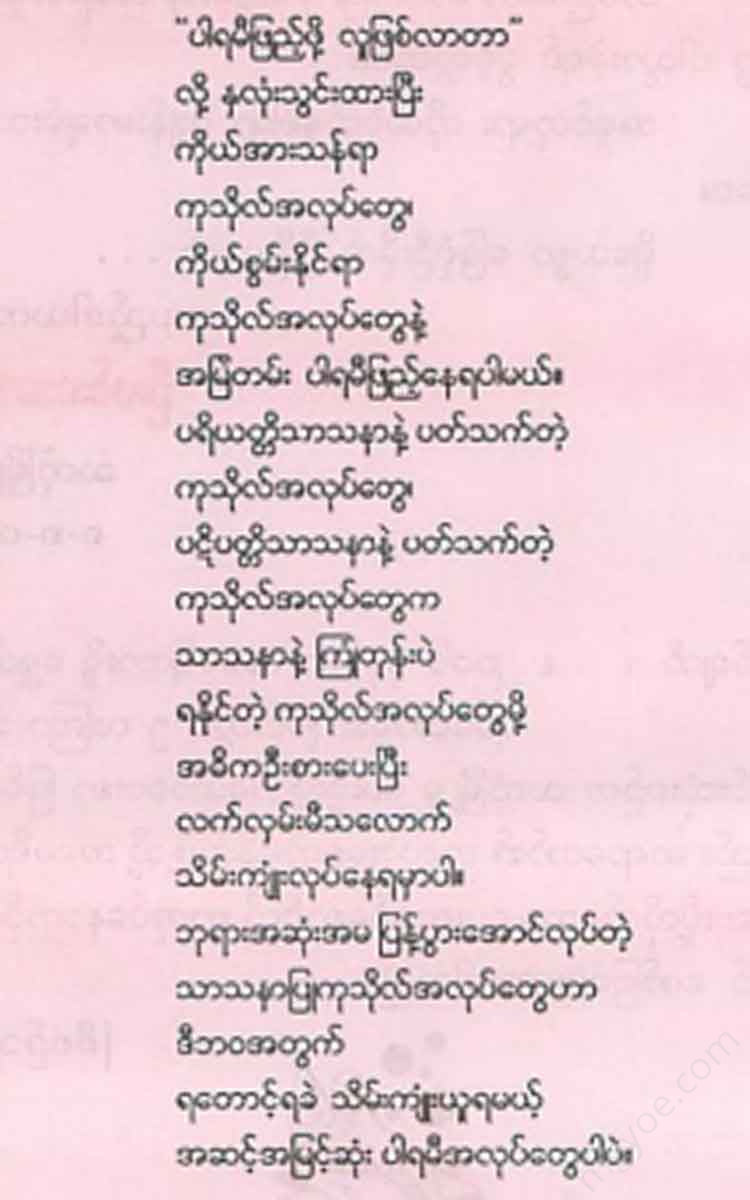Other Websites
Ashin Sandadhika - The meaning of life
Ashin Sandadhika - The meaning of life
Couldn't load pickup availability
Life purpose
Returning to life and death
The sermon held today is to commemorate the silver jubilee (25) anniversary of the passing of the venerable Venerable Gandharon Sayadaw, the late Venerable Kyanthu Akayaw Maha Gandharon Sayadaw.
When monks, monks, and nuns pass away, the common expression is, "He passed away to the gods of life." However, in reality, the Blessed One did not pass away to the gods of life. He probably passed away to the human race.
Have you ever heard of “passing away to the afterlife”? I haven't heard of it. I've heard it now. The phrase “passing away to the afterlife” is used by U Zin to refer to the return of a human being to the human world.
In the Burmese language, when a monk or monk passes away, it means he has died. When a monk or monk, whether a monk, a monk, a monk, or a monk, dies, passes away, or reaches the end of his life, it is said that he has passed away to the gods. It does not matter whether he actually passed away to the gods.
Some people also wonder if he has gone to hell. Yes, he has. But whether he smiles or not, it is said that he has gone to the afterlife.
In the sermon "Death is the friend of the virtuous," I have spoken of two types of death. Death is the return of the dead. The return of the dead and the return of the dead.
The meaning of rebirth is... The four realms are the personal home of beings. If you go to the four realms after death, it is called rebirth. It is called rebirth because you go back to your own home, your original home, which is the four realms.
You may have heard of a monk who died and became a monk. He took the robe he had intended to wear and became a monk. You may have also heard of a monk who died and became a dragon because of a doubt in one of the precepts. If he became a dragon, he became an animal. That is called rebirth.
When birds fly, they are called "flying" because they go from a low place to a high place.
When a person dies from this human life and goes to the heavens, the Brahma world, or Nibbana, it is called a passing away because it flies high.
If, after death, a person is reborn as a human being, a person of a higher level than this life, or a person of a higher level than this life, then it is called a transcendental being.
This is not just used by monks. If we look at it in secular terms, it is a word used only for monks who wear robes. If we look at it from a lay perspective, aren't there two types of words: passing away and passing away?
Even lay people, after death, go to hell, animals, ghosts, auras, and other realms, so they return to their own home, so it is called "passing away." If they go to the heavens, the Brahma realm, or if they become humans, they fly to a higher level than this life, so it is called "passing away." Now, listeners, do you want to go back? Do you want to fly? Do you want to fly? If so, try to have wings. "If you have wings, you can't fly to me." Yes, you can.
In other words... when he passed away, it can be taken as a sign that the pronunciation of the word "pasaw yarit" has changed from "pasaw ra pint" to "pasaw thait ting" (flying). The monks and nuns usually come from the land of Brahma, so this is not true.
Those who come from the land of Brahma, in other words, human beings who have been reincarnated as Brahma, are not interested in the work of marriage and childbearing. They are not interested in living in a household and enjoying the pleasures of the worldly senses and pleasures, but are only interested in the work of the Dhamma, the work of liberation from the suffering of samsara.
Humans who are reincarnated as Brahmans are either monks or bachelors. They are nuns or bachelors. They are nuns or bachelors. This is generally said. Just as not every Brahman reincarnates as a monk or nun, not every monk or nun reincarnates as Brahmans.
Monks are usually young men. There are also monks who wear robes. There are few. Most of them are young men. Is the monk who is preaching now young or old? A real young man. Among the people in the world who have never had a girlfriend, U Zin is number one.
Monks who are not interested in building a community usually come from the land of Brahma... and they use this kind of flattery.
It's not that I actually came from the land of Brahma, but being free from sensual desires, or being able to control sensual desires, is synonymous with coming from the land of Brahma, so it can be said that I came from the land of Brahma.
In the Brahma world, people live in complete peace and tranquility, so they have no sexual desire at all. When they come to the human world from the Brahma world, they are accompanied by a rush of sexual desire, so even if they are not completely free from sexual desire, they are very weak. It is not because they are weak because they are erectile dysfunction.
Having experienced the bliss of meditation for many years and many worlds, I no longer even consider sensual pleasures to be a part of my list of pleasures, nor do I consider them to be pleasant at all. I often instinctively detest the work of marriage and childbearing.
In human life, I do religious work as a monk. I practice and strive for liberation from the suffering of samsara. If I also practice meditation, I will also attain jhana. If I die without losing that jhana, I will return to the Brahma land. That is why I use the expression "I have passed away" because I will return to the Brahma land from which I came.
From there, the pronunciation gradually changed to pasaw ra pint thaithai tin (ສານ). The pronunciation changed to (ສານ), but the meaning still means “returning” to the Brahma land from which one came. The main thing is the Brahma land. If one is not as good as the Brahma land, one can also fly to the celestial land. Many great monks come from the celestial land and the Brahma land.
In any case, in worldly terms, it is appropriate to use it in a polite and respectful manner. When it comes to kings, they say that they have passed away, their fortunes have ended, etc. When it comes to monks, they say that they have passed away to the afterlife. Some people also say, “They have moved to the afterlife.”
Going to school in the heavens means that one will continue to spread the religion and the Dhamma as a good deity and missionary deity in the heavens. They say, "I have moved to the heavens as a good deity" with the intention of carrying the spirit and character of a monk to the heavens. It is easy to say that they are offering.
The word "passed away" is commonly used, so to be different from others, some people use it to say that their teacher passed away to the spirit of life. Now, when I look at the newspaper advertisement for the Shwepyi Hein Dharma Festival, I see that the word "passed away to the spirit of life" is used with the full word "sam".
Many people believe that he passed away to the spirit world, but U Zin and I believe that the Buddha will pass away to the human world. Because if the Buddha dies in this life, he wants to be a human again in the next life. This is what the Buddha said directly many times.
It is also included in the book of the life cycle written by the Buddha himself. Since I am going to give this sermon, I have read all the books about the Buddha, but I have not been able to read any of them because I am busy with other work.
This morning, I spent the whole morning with other things. I spent my time with books and other religious matters, so I didn't look at anything. But I remember. In the book of life cycles, the Buddha himself wrote... "I want to be a human again in my next life."
Where do people want to go? I don't want to go to America or Australia. I want to be a person in Myanmar. I don't want to be a person in Yankin, even in Myanmar. I want to be a person in Sagaing Region. Sagaing Region, Shwebo District, Wet Let Township, Tharai Village. I want to be a person in the village where I was born in this life.
The Sayadaw Buddha... I am from Tharai village in Shwebo district. The Sayadaw Buddha himself wrote that if he were to be reborn in his next life, he would like to be reborn in that same Tharai village. When he gave informal teachings outside, he also said that he wanted to be reborn.
When I return to my human form, I want to study the Dharma books I wrote in this life and then practice my religion. The Buddha often says this.
If the venerable Sayadaw is reincarnated, then I would say that his wish has been fulfilled. The venerable Sayadaw wants to study, learn, and memorize the scriptures he wrote himself. And he wants to practice the religion again.
Why did the venerable monk want to become a human being again? Why did he want to re-read the scriptures he wrote and serve the monks? The venerable monk values virtue. He wants to fulfill virtue. He wants to fulfill virtue as a monk serving the monks while the Buddha's religion is still in existence.
